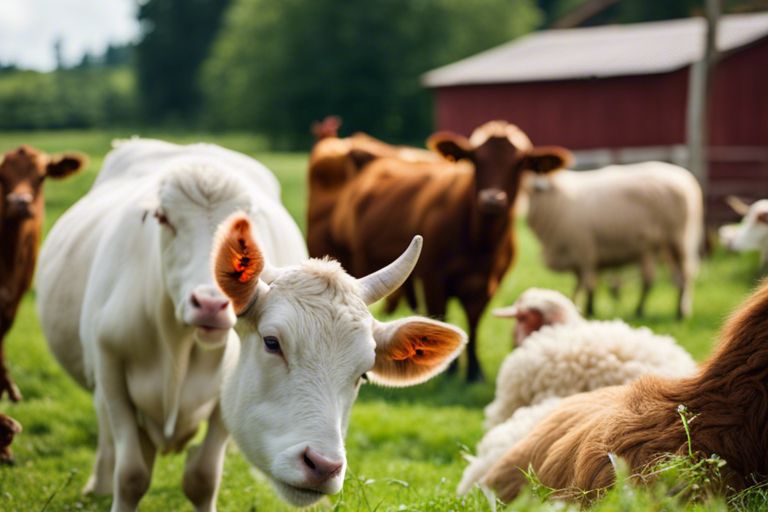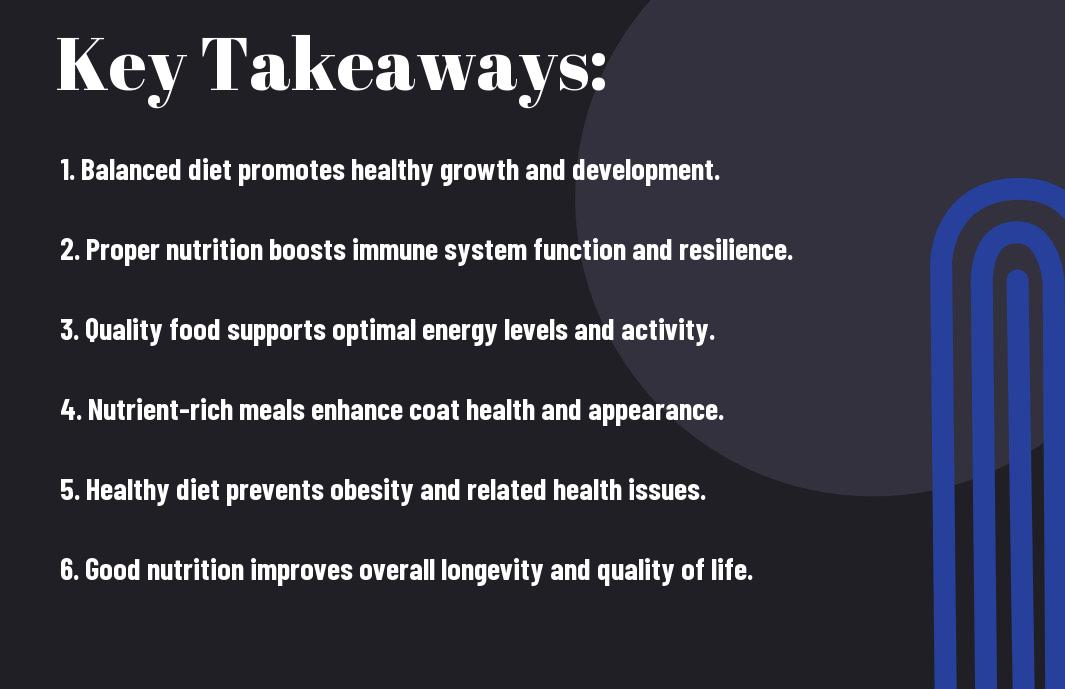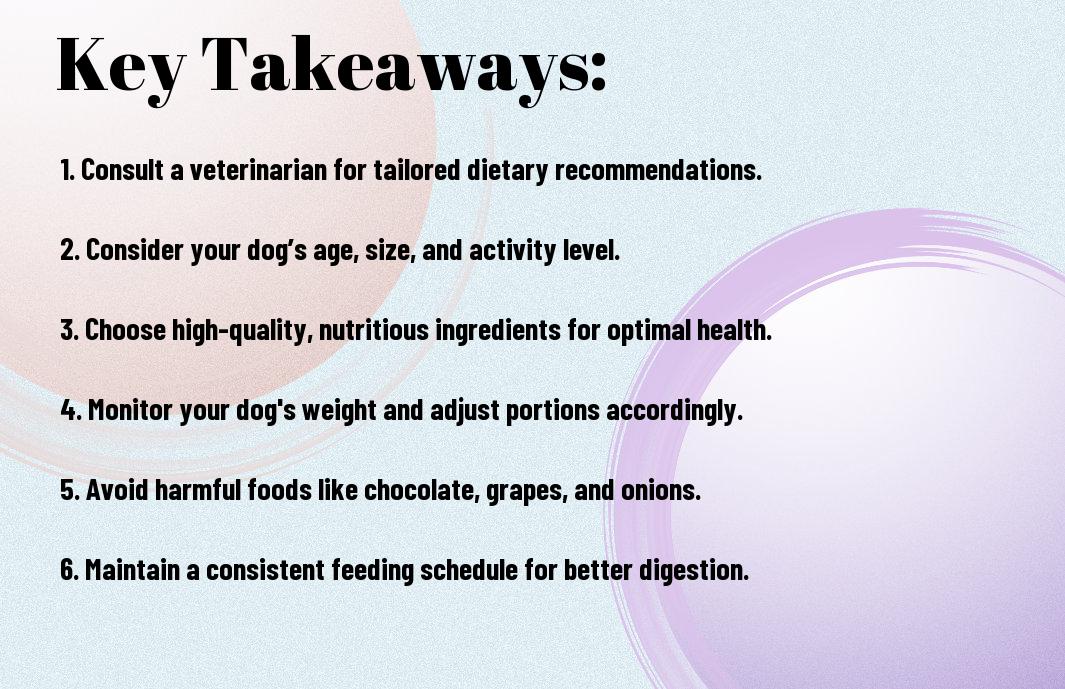Conclusively, ensuring your livestock receive the 10 necessary nutrients they need is crucial for their overall health and well-being. By providing a balanced diet that includes protein, carbohydrates, fats, vitamins, and minerals, you can help your animals thrive and reach their full potential. Remember to consult with a veterinarian or animal nutritionist to create a customized nutrition plan that meets the specific needs of your livestock. By prioritizing their nutritional requirements, you will be contributing to their productivity, growth, and overall quality of life.
Hydration
Your livestock’s health and well-being depend significantly on their access to clean, fresh water. Water is necessary for overall bodily functions, including circulation, digestion, and temperature regulation. Make sure your animals have continuous access to water to prevent dehydration, especially in hot weather or during periods of high activity. Dehydration can lead to serious health issues and even death in extreme cases.
Metabolic processes
The importance of water goes beyond mere hydration. It plays a pivotal role in various metabolic processes within your livestock’s body. Water is crucial for nutrient absorption, waste removal, and toxin excretion. Additionally, it aids in the regulation of body temperature and helps with the transportation of necessary nutrients to cells. Without adequate water intake, these vital metabolic functions can be compromised, affecting your animals’ overall health and performance.
With such critical roles in maintaining your livestock’s health, it is necessary to ensure they have access to clean water at all times. Monitoring water consumption and quality regularly can help prevent health issues and ensure optimal performance from your animals. Note, water is not just a drink, but a vital nutrient for your livestock’s well-being.
Proteins
Growth
One of the necessary nutrients that livestock need to thrive is protein. This nutrient is crucial for growth and development in animals. Proteins are made up of amino acids, which are the building blocks of muscles, tissues, and organs. Therefore, a diet rich in protein is necessary for young animals to grow properly and reach their full potential.
Tissue repair
An important role of proteins in livestock nutrition is tissue repair. When animals experience injuries or undergo physiological stress, protein is necessary for the repair and maintenance of their tissues. Proteins aid in the production of enzymes and hormones that help in the healing process, ensuring the overall well-being of the animals.
The amino acids found in proteins play a significant role in tissue repair. Certain amino acids, such as arginine and glutamine, have been shown to promote wound healing and immune function in animals. Therefore, ensuring that livestock have an adequate intake of protein is crucial for their health and productivity.
Carbohydrates
Energy
Some of the necessary nutrients your livestock need to thrive are carbohydrates. Carbohydrates are a vital source of energy for your animals, providing them with the fuel they need to carry out various physiological functions. These organic compounds are made up of carbon, hydrogen, and oxygen, and are found in a variety of feed sources such as grains, hay, and forage.
Digestion
For optimal digestion and absorption of nutrients, your livestock require a balanced intake of carbohydrates. Carbohydrates are broken down in the digestive system into simpler forms like glucose, which is then utilized by the body for energy production. A deficiency or excess of carbohydrates can lead to digestive issues and impact the overall health of your livestock.
Any imbalance in carbohydrate consumption can disrupt the digestive process in your livestock, leading to potential health problems. It is necessary to provide a well-rounded diet that includes appropriate levels of carbohydrates to ensure proper digestion and nutrient absorption. Monitoring the carbohydrate content in your livestock’s feed is crucial for their overall well-being.
You can consult with a veterinarian or nutritionist to develop a balanced diet plan that meets the carbohydrate requirements of your livestock. By carefully managing the carbohydrate intake of your animals, you can support their digestive health and promote optimal performance and growth.
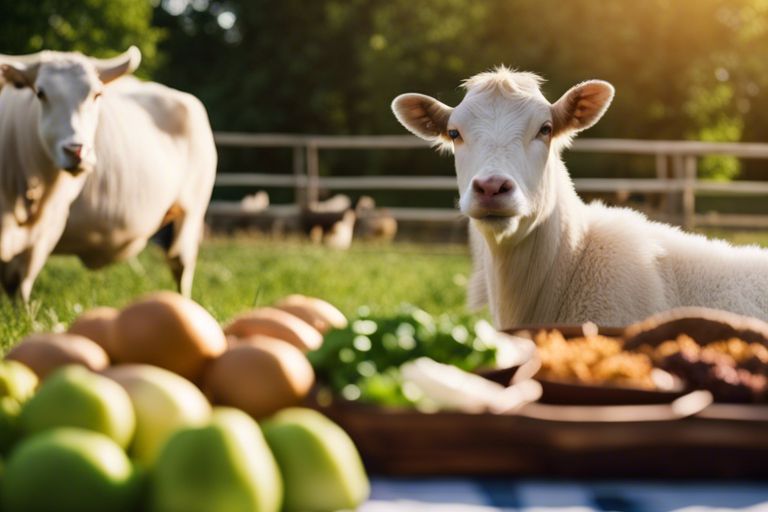
Fats
Energy reserves
For livestock to thrive, fats play a vital role in providing energy reserves. If your animals do not have enough fats in their diet, they may struggle to maintain their energy levels, especially during periods of high activity or stress. Fats serve as a concentrated source of energy, allowing livestock to perform important functions such as growth, reproduction, and overall well-being.
Nutrient absorption
If your livestock do not receive adequate fats in their diet, nutrient absorption may be compromised. Little do many know that fats play a crucial role in the absorption of fat-soluble vitamins A, D, E, and K. These vitamins are important for various functions in the body, including immune health, bone development, and vision. Without sufficient fats, your livestock may not be able to fully benefit from these vital nutrients.
The inclusion of fats in your livestock’s diet is important for overall health and well-being. Fats not only provide energy reserves but also support nutrient absorption, ensuring that your animals can thrive and perform at their best. Make sure to include a balanced amount of fats in their diet to promote optimal health and productivity.
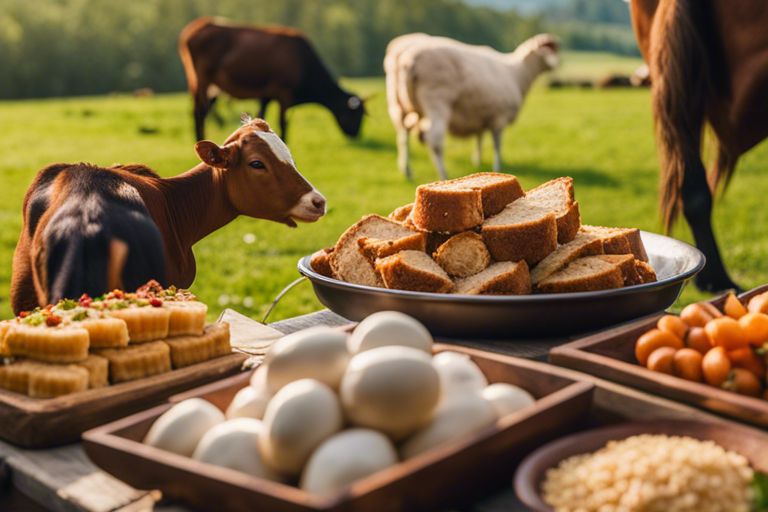
Minerals
Bone Structure
Many vital minerals play a crucial role in maintaining the health of livestock, especially when it comes to bone structure. Even minor deficiencies in minerals like calcium, phosphorus, and magnesium can lead to weakened bones and skeletal problems in animals. It is vital to provide a balanced mineral supplement to ensure the proper growth and development of healthy bones in livestock.
Electrolyte Balance
Even though often overlooked, maintaining electrolyte balance in livestock is vital for overall health and proper bodily functions. The right balance of minerals like sodium, potassium, and chloride is vital for proper hydration, nerve function, muscle contractions, and regulating body temperature in animals. The lack of electrolytes can lead to dehydration, muscle weakness, and even death in severe cases.
The electrolyte balance in livestock is crucial for maintaining the right pH levels in the blood, transmitting nerve impulses, and ensuring proper muscle function. It is vital to provide access to clean drinking water and a balanced mineral supplement to prevent any imbalances that could lead to health issues in your animals.
Calcium
Bone Growth
Now, calcium is a crucial nutrient for bone growth in livestock. Bones provide structure, support, and protection for the animal’s body. Adequate levels of calcium are necessary to support the development of strong and healthy bones, especially in young growing animals. Without sufficient calcium, livestock may experience stunted growth and weak bones, which can lead to fractures and other health issues.
Blood Clotting
Any deficiency in calcium can also affect blood clotting in livestock. Calcium plays a vital role in the clotting process, where it helps in the formation of fibrin. Fibrin is a protein that forms a mesh-like structure to stop excessive bleeding when an animal is injured. Without enough calcium, blood clotting may be impaired, leading to prolonged bleeding and increased risk of infections.
For proper blood clotting to occur, calcium must be readily available in the animal’s bloodstream. Livestock with a calcium deficiency may experience difficulties in clot formation, making them more vulnerable to injuries and other blood-related complications. Ensuring that your animals have a balanced diet rich in calcium is vital for their overall health and well-being.
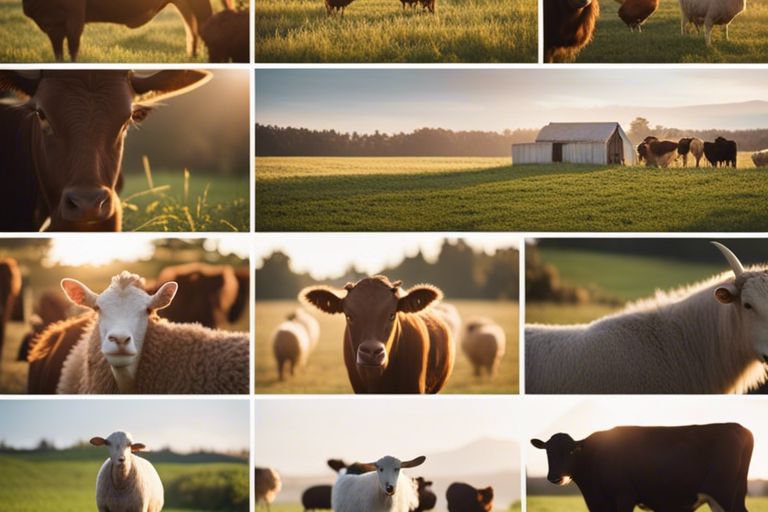
Phosphorus
Energy metabolism
Clearly, phosphorus plays a crucial role in the energy metabolism of livestock. It is a key component of adenosine triphosphate (ATP), which is the primary energy carrier in cells. Phosphorus is vital for the conversion of food into energy and for various physiological processes that require energy, such as growth, reproduction, and lactation.
Nutrient transport
With phosphorus being vital for nutrient transport in livestock, it helps in the utilization of other vital nutrients like carbohydrates, fats, and proteins. Phosphorus is necessary for the proper functioning of cell membranes, which play a critical role in the transport of nutrients into and out of cells. This process is vital for overall growth and development in livestock.
Energy
Phosphorus is a non-renewable resource, and its availability in feed and forages can vary. It is important for livestock producers to ensure that their animals receive adequate phosphorus through their diet to support energy metabolism, nutrient transport, and overall health and productivity.
Sodium
Nerve function
Now, one of the vital roles of sodium in livestock nutrition is its crucial involvement in nerve function. Sodium ions play a vital role in transmitting nerve impulses throughout the body, allowing for proper communication between the brain and other parts of the body. Without an adequate supply of sodium, nerve function can be compromised, leading to issues like muscle weakness and coordination problems.
Muscle contractions
On the other hand, sodium is also key for proper muscle contractions in livestock. Muscles require sodium ions to initiate and regulate the process of contraction and relaxation. This ensures that animals can move efficiently and perform activities vital for their well-being, such as walking, eating, and even digesting food.
Nerve signals stimulate the release of sodium ions within muscle cells, which in turn triggers the movement of proteins that enable muscle fibers to contract. This intricate process highlights the indispensable role of sodium in maintaining healthy muscle function and overall livestock performance.
Vitamins
Immune system
You’ll find that vitamins play a crucial role in supporting your livestock’s immune system. Vitamins A, C, and E are known for their antioxidant properties, which help protect the body against diseases and infections. Vitamin D is also imperative for regulating the immune response and reducing inflammation. Ensuring your livestock has adequate levels of these vitamins can boost their overall immunity and help them fight off illnesses more effectively.
Metabolic regulation
Clearly, vitamins are vital for metabolic regulation in livestock. These imperative nutrients play key roles in various metabolic processes, such as energy production, hormone synthesis, and enzyme function. Vitamin B complex, for example, is crucial for converting food into energy and maintaining a healthy metabolism. Deficiencies in these vitamins can lead to metabolic disorders, impacting the overall health and performance of your livestock.
This makes it imperative for livestock owners to provide a well-balanced diet that includes a variety of vitamins to support metabolic functions. Incorporating vitamin-rich supplements or fortified feeds can help ensure your animals receive adequate nutrition to maintain optimal metabolic regulation and overall well-being.
Summing up
Conclusively, ensuring your livestock receive the 10 necessary nutrients they need is crucial for their overall health and well-being. By providing a balanced diet that includes protein, carbohydrates, fats, vitamins, and minerals, you can help your animals thrive and reach their full potential. Remember to consult with a veterinarian or animal nutritionist to create a customized nutrition plan that meets the specific needs of your livestock. By prioritizing their nutritional requirements, you will be contributing to their productivity, growth, and overall quality of life.
FAQ
Q: What are the 10 crucial nutrients that livestock need to thrive?
A: Livestock need water, carbohydrates, fats, proteins, vitamins, minerals, fiber, roughage, energy, and nutrients for growth and maintenance to thrive.
Q: Why is water an crucial nutrient for livestock?
A: Water is crucial for livestock as it helps regulate body temperature, aids in digestion, transports nutrients, and eliminates waste products.
Q: What role do carbohydrates play in the diet of livestock?
A: Carbohydrates are a primary source of energy for livestock, providing fuel for daily activities, growth, and reproduction.
Q: How do proteins benefit livestock health?
A: Proteins are crucial for building and repairing tissues, producing enzymes and hormones, and supporting the immune system in livestock.
Q: Why are vitamins necessary for livestock nutrition?
A: Vitamins are vital for various metabolic functions, immune system support, reproduction, and overall health in livestock.
Q: What is the importance of minerals in the diet of livestock?
A: Minerals play a crucial role in bone development, muscle function, enzyme systems, and overall health maintenance in livestock.
Q: How do fiber and roughage contribute to the well-being of livestock?
A: Fiber and roughage aid in maintaining digestive health, promoting proper rumen function, and preventing digestive issues in livestock.
